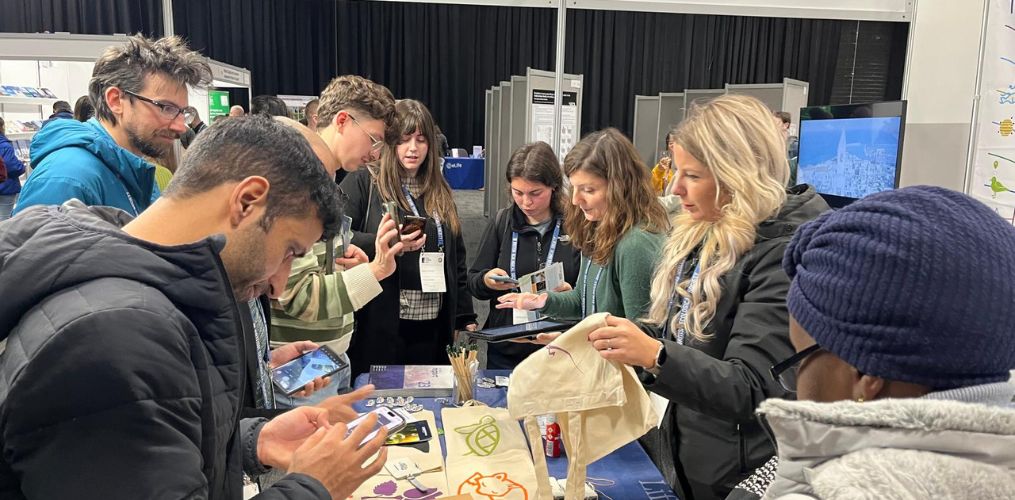
From 10 to 13 December 2024, over 1500 ecologists gathered in Liverpool for Europe’s largest conference dedicated to ecology.
The event held particular relevance for LifeWatch ERIC, thanks to a rich programme of Thematic sessions, addressing the biodiversity crisis, nature restoration policies and practices, novels tools and technologies to tackle current challenges, and much more.
This annual meeting also brought together one of the most relevant scientific communities for LifeWatch ERIC’s mission.
Earlier this year, LifeWatch ERIC was featured in the autumn issue of the British Ecological Society’s Niche magazine, reinforcing the strong connection between the research infrastructure and the ecology community (read more here).
LifeWatch ERIC attended the conference with a booth dedicated to research communities facilities, services and resources (including ENVRI-Hub NEXT), and a series of talks dedicated to biodiversity monitoring, conservation strategies, and more.
The booth was a great success, directly engaging more than 300 attendees. A unique opportunity to collect feedback on user needs and research priorities.
Researchers were invited to share their views via brief surveys about the challenges they face and how LifeWatch ERIC’s services could support their work.
The response was extremely positive: 275 scientists and researchers from 33 different countries participated, representing different demographics and career stages, from early-career researchers under 30 to established experts over 60 years old. A great result, that highlights a growing interest in our services and offers insights into the needs, priorities and engagement level of researchers. This will help us to better tailor our services to match the expectations of ecologists, and biodiversity and ecosystem researchers.
The conference also proved to be a powerful engagement tool in involving scientists within the new LifeWatch ERIC flagship initiative, dedicated to its Thematic Service Working Groups (Ecological responses to Climate Change, Animal movement and bio-logging, Biogeography, Biodiversity observatory automation, Habitat mapping and Taxonomy). These groups have the objective to promote collaboration and innovation within the research community. With 67% of respondents willing to join one or more of the thematic working groups, the surveys have been an indicator of the relevance of our thematic services and the desire of researchers to collaborate with the infrastructure.
The feedback and connections made during the conference will help us refining and expanding our services to meet the evolving needs of researchers.
For more information on the Thematic Services Working Groups you can visit this page: https://www.lifewatch.eu/thematic-services-working-groups which will be regularly updated with new developments.